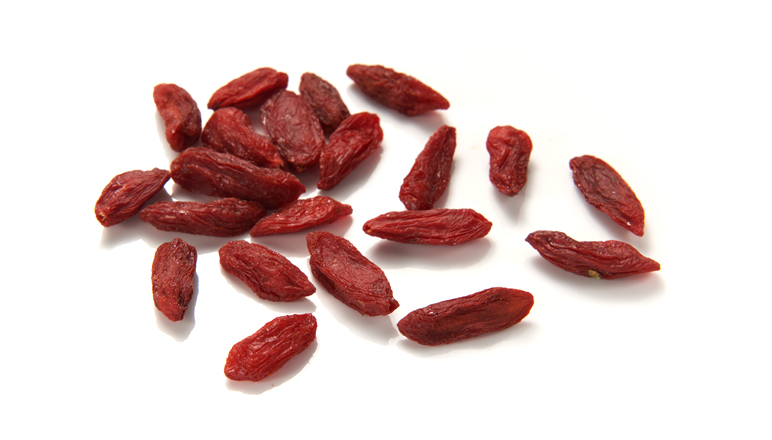
Goji Berries
ORIGIN: non-UE
Appreciated for their properties and known in the East for thousands of years, Goji berries are small, slightly elongated, deep red fruits, harvested from a shrub belonging to the Solanaceae family that grows wild in the valleys of the Himalayas, Tibet, Mongolia and in the provinces of Xinjiang and Ningxia in China. The word Goji probably comes from the approximation of the Chinese pronunciation gǒuqǐ 枸杞, which is the Chinese term for berry.
An essential element in traditional Chinese medicine, Goji berries are rich in proteins, mineral salts such as sodium, magnesium, phosphorus, calcium, potassium and manganese, vitamins A, C, E and B1, carotene, lutein, amino acids and fibres. All these nutrients guarantee enormous benefits for health and its maintenance. Goji berries help to detoxify the liver, to maintain hydration and elasticity of the skin, to strengthen the immune system.
Despite their highly beneficial properties, it is recommended not to exaggerate with the dosage. In particular, the recommended daily dosage for adults is 30 grams (plus or minus three tablespoons), while for children it is limited to 3 teaspoons.
As for their use in the kitchen, they can be incorporated into the doughs of bakery products to add a special touch to doughnuts, biscuits, cereal bars. They are excellent in the morning in yoghurt together with the muësli, or they can be combined in salads and couscous, or directly eaten as snacks, alone or together with seeds and dried fruit.

